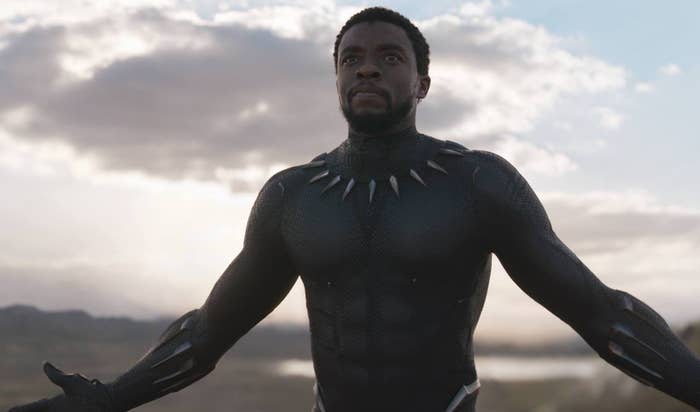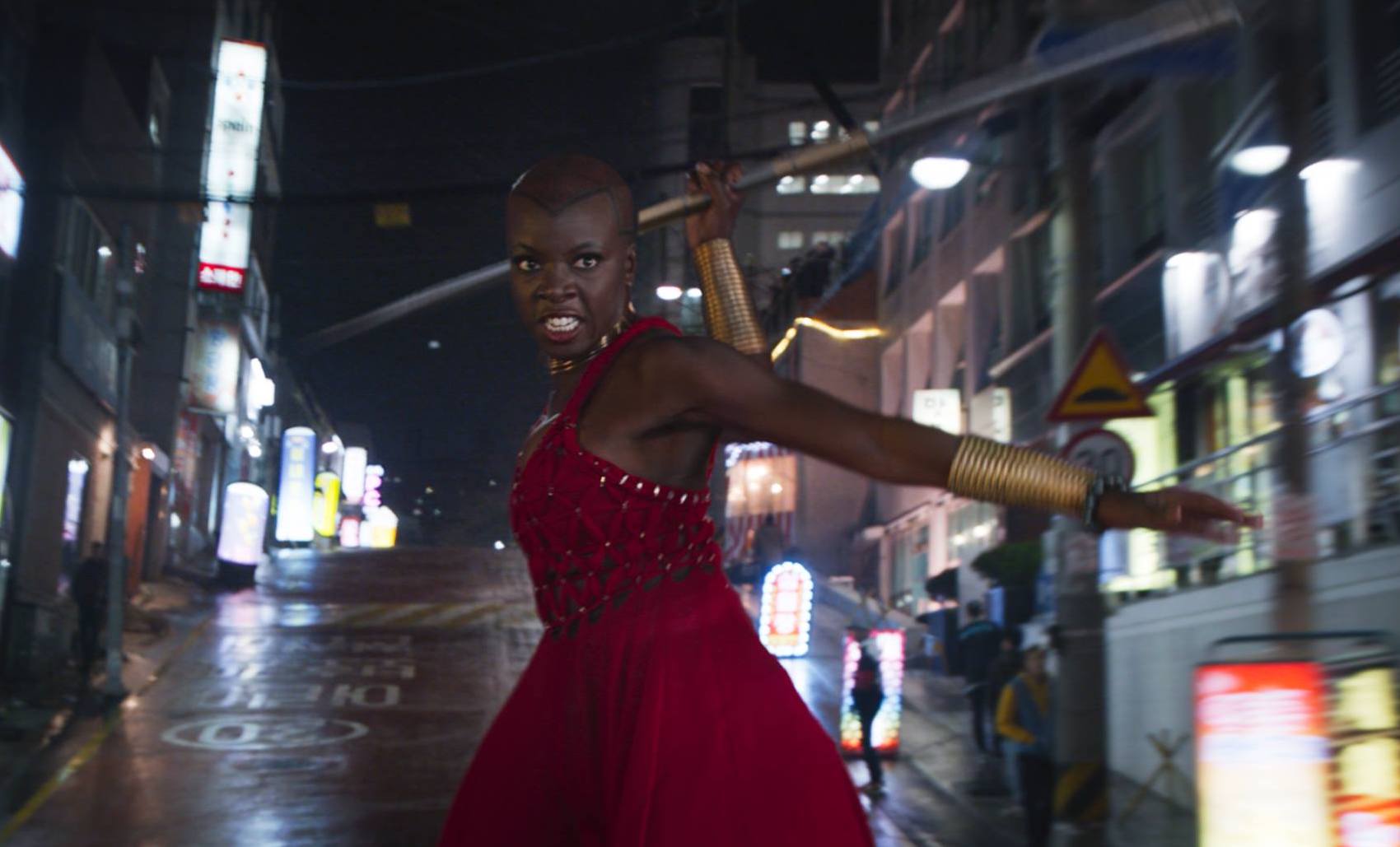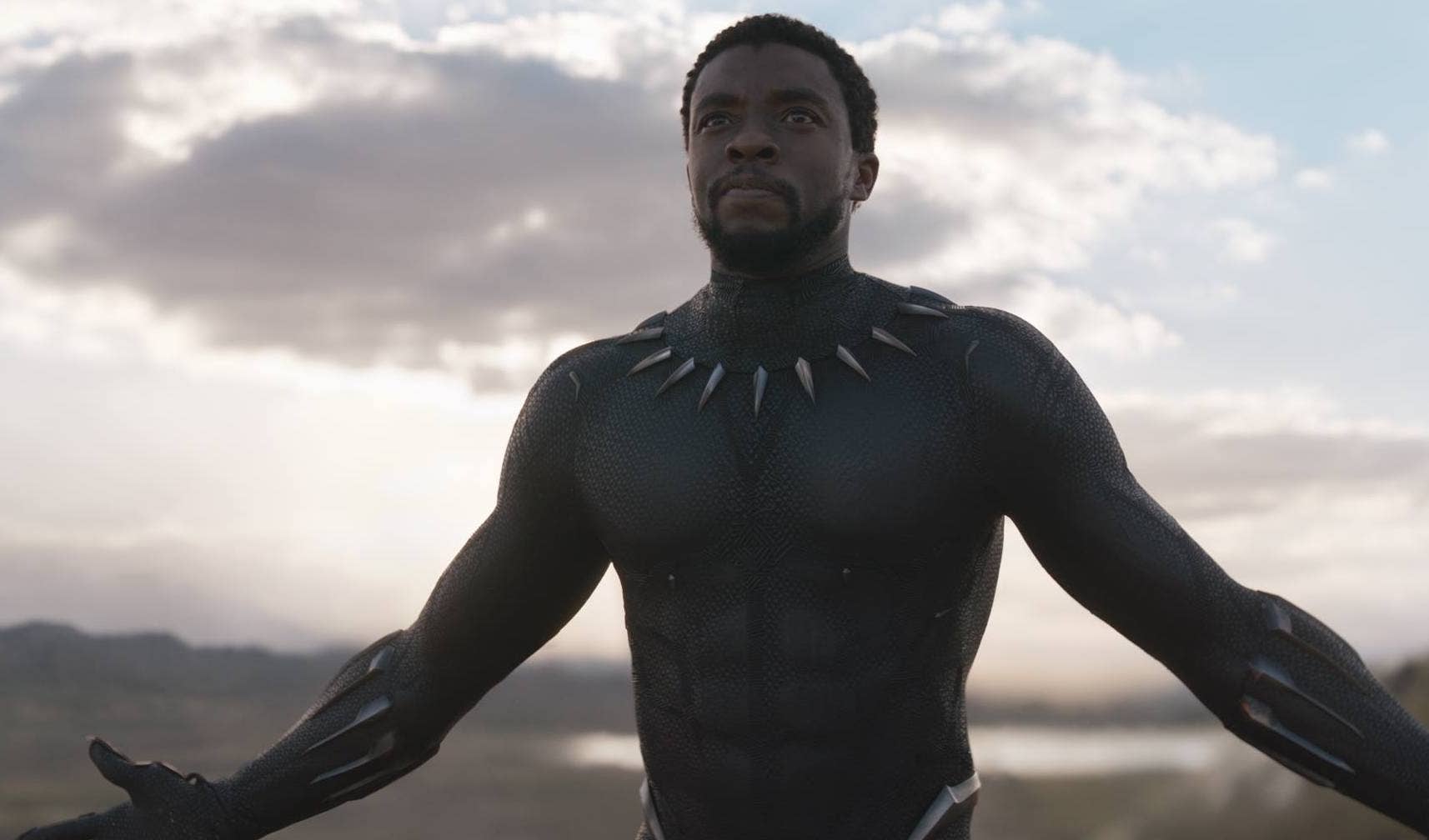
“You are a good man with a good heart. And it’s hard for a good man to be king.” – King T’Chaka
Black Panther, released in theaters on Feb. 16, 2018, celebrates its fifth anniversary today. It remains one of the Marvel Cinematic Universe’s finest achievements. The film tells a bold, worthy story about traumatic loss—of family, of identity, of home—and it asks us to identify with its villain as much as its hero.
The best villains are the ones that we empathize with. We knew Erik Killmonger (Michael B. Jordan) was wrong, that his plan to arm the oppressed people of the world would result in a pyrrhic victory at best and a slaughter of his people at worst. But damned if we didn’t feel his rage and his willingness to burn the world down because he’s traveled it, lived it and seen the worst it has to offer.
On the other side is T’Challa, a good man with a good heart. He could have killed his cousin without giving him an audience. He could have kept a shameful family secret buried forever; his father, whom he idolized and placed on a pedestal, was deeply flawed. But T’Challa believed that the ugly truth was preferable to a well-intentioned lie.
View this video on YouTube
The first time he fought Killmonger, T’Challa showed mercy; he could have killed his opponent at least twice, but allowed him to recover his stance both times. T’Challa misread his adversary as family, as someone who could be reasoned and appealed to—as someone who wasn’t irreparably broken and beyond redemption. It nearly cost him his life.
The second time he fought Killmonger, T’Challa did not hesitate at the moment of truth. The stakes were clear and high. They outweighed his personal concerns. But we see his guilt and sorrow for doing what was necessary. He could not fix or redeem his father’s mistakes—his blind eye to the world’s suffering, and his abandonment of his brother’s only son. The best he could do was prevent further damage and resolve to do better moving forward.
In an interview with YR, director Ryan Coogler alluded to this narrative complexity: “Erik’s confrontation makes T’Challa a better king.” That’s because T’Challa sees the truth in Erik’s words. Wakanda flourishes, but at what cost? How many refugees died? How many neighbors were forced into slavery? How many famines ran rampant? There is a middle ground between fighting people’s wars for them and turning a blind eye to preventable atrocities. And until T’Challa became king, Wakanda did not want to find that middle ground.





